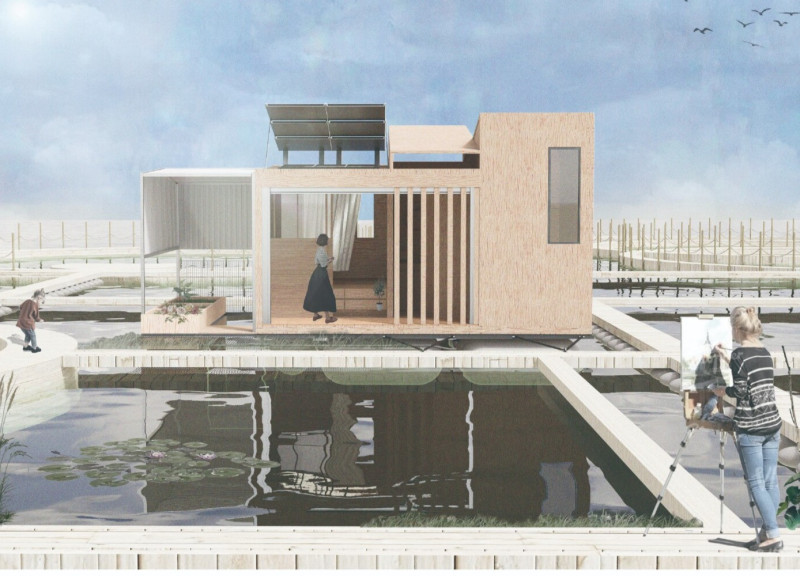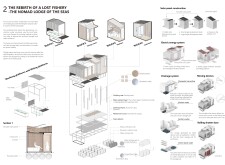5 key facts about this project
## Overview
Located near Xiangang Village in Linghuli Autonomous County, Hainan Province, China, the Nomad Lodge of the Seas is a redesign of traditional fishing habitats aimed at revitalizing the ecological and cultural aspects of the Dan people, who possess a deep connection to aquaculture and fishing. This initiative focuses on sustainability and energy conservation while facilitating community interaction and preserving traditional fishing practices.
## Spatial Arrangement and Functionality
The project employs a modular design consisting of distinct functional blocks, which include a workshop, living area, kitchen, and restroom. This configuration allows flexibility to adapt to the varying needs of users and seasonal fishing patterns. Floating structures promote mobility, enabling them to shift locations based on ecological factors and optimizing fishing opportunities. The arrangement draws inspiration from traditional cabin layouts, ensuring both familiarity and modern utility. Features such as sliding shutter doors enhance ventilation and connectivity between indoor and outdoor environments.
## Sustainable Material Selection
The architectural design incorporates sustainable materials that minimize environmental impact and enhance longevity. Wood Plastic Composite (WPC) is used for its recycled content and durability, while locally sourced Camphor tree wood enriches the interiors. Complementary materials include density board for structural integrity, coconut palm for additional insulation, polythene for waterproofing, and aluminum alloy for lightweight structural components. The design also integrates energy systems utilizing solar panels and a comprehensive approach to rainwater collection and sewage treatment, reflecting an emphasis on resource preservation and ecological stewardship.






















































